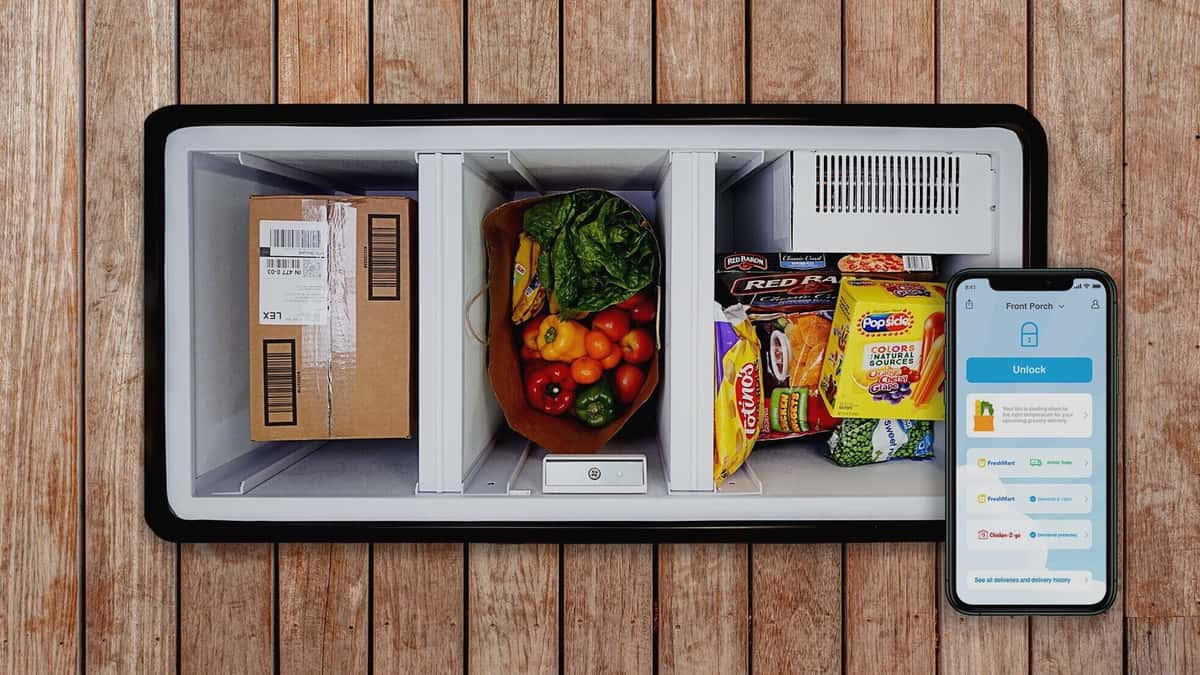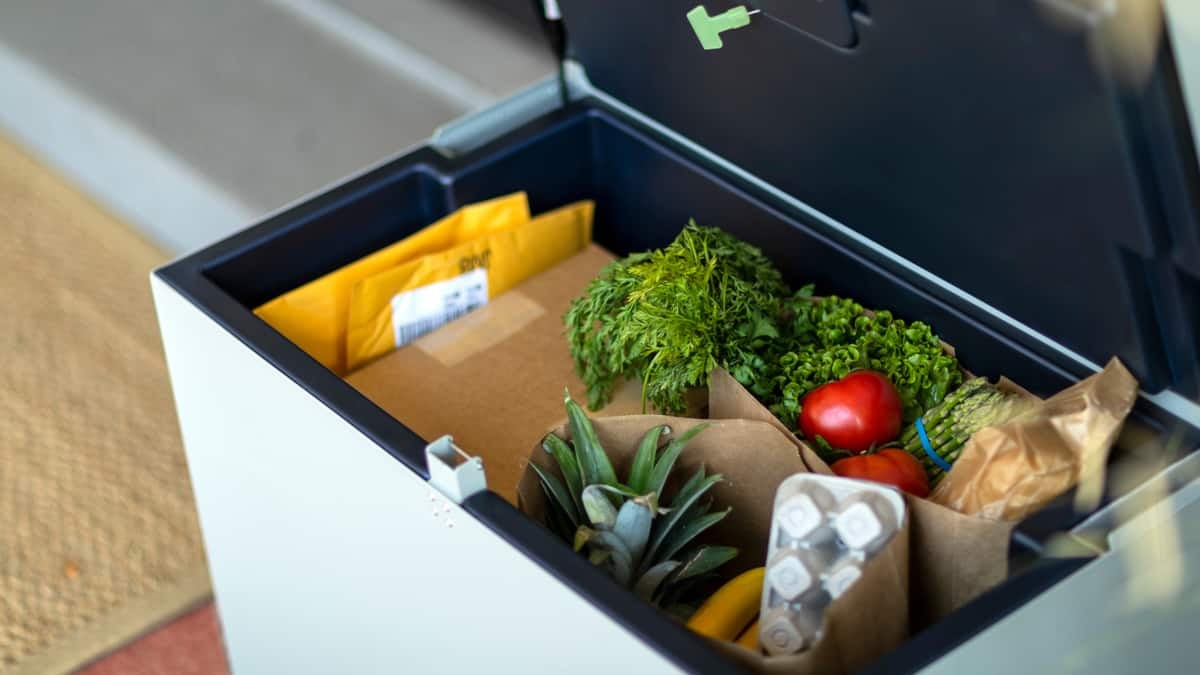As e-commerce has grown, so too has the number of porch pirates.
According to C+R Research, 59% of respondents to a package theft survey of 2,000 consumers conducted in 2020 reported receiving a package at least once a week. That is up 10 points from the 2019 survey. When it comes to package theft, 43% reported a stolen package in 2020, up from 36% in 2019, and of those that had a package stolen, 64% had been a victim more than once.
The average value of a stolen package was $136 in 2020.
“As package thieves, or ‘porch pirates,’ become craftier, it’s important for consumers to be one step ahead when it comes to package theft prevention. Doorbell cameras are one of the most common ways to deter package thieves,” C+R reported.
Still, 50% of respondents reported having a doorbell camera, motion lights or some other type of surveillance, and yet theft is still a concern.
Almost one-third of consumers (32%) believe shipping companies such as FedEx (NYSE: FDX), UPS (NYSE: UPS) and Amazon (NASDAQ: AMZN) should do more to prevent theft.
What more package delivery companies can do is open to question, but several companies are springing up hoping to help with innovative porch boxes designed for securing packages or groceries.
“The whole delivery of merchandise and groceries is just inconvenient, and we got talking about that and we built a company around that,” said Adam Schumacher, co-founder of DeliverySafe, one of those companies. “Consumers need a convenient way to guarantee they get what they pay for when ordering online. We founded DeliverySafe to provide people with peace of mind knowing their deliveries are safe and fresh on their porch or driveway.”
Schumacher is a partner in NXT Ascent, a venture studio that develops ideas into businesses. Schumacher founded DeliverySafe with partners Jim Streibich, Shawn Reed and Mike Vig.

The DeliverySafe box is designed for adoption. Weighing in at 62 pounds and measuring 34 inches long by 19 inches deep and 22.5 inches high, the box can hold a variety of packages, including groceries and meal kits, which Schumacher said is expected to be a $10 billion business in the next few years.
“We don’t believe consumers are ready to let delivery drivers into their homes,” he said. “I don’t think the consumers are there yet, and I don’t know if they will ever be.”
He said businesses are becoming adept at getting goods to the consumer door, but they still have to get inside.
“Any company out there that ships to your home is dealing with the issue of package theft, of inconvenience for their consumers,” Schumacher said. “As companies look to expand … are there deterrents along the way that can be solved by Deliverysafe?”
DeliverySafe is a basic insulated box that can maintain fresh groceries for up to 12 hours, Schumacher said. There is also the option to purchase ice packs for additional temperature regulation. Unlike some other boxes on the market, Schumacher said it was important to not “overdo the tech” to speed adoption. It does not require Wi-Fi or electricity, providing flexibility to install where it is convenient.
“We believe if you have to plug it in, that will lower the adoption rate,” he said. “We designed and developed it to maximize the use of every single meal kit on the market, the average grocery order for a family of four and the average merchandise delivery from Amazon, UPS and FedEx.”
The consumer manages the locking mechanism with through the codes. Up to 50 different codes can be created at any time and provided to the delivery company, Schumacher said. Most online retailers have options within the checkout screen to input delivery instructions, which is where the code would be entered.
DeliverySafe comes with two anchor systems, one for attaching to wood and the other for anchoring to concrete. It is currently available for $499.

More flexible options
Some consumers might want a box that is a bit more intuitive. Fortunately for them, options are coming along as well. HomeValet is one of those companies.
The startup has just announced a pilot program with Walmart (NYSE: WMT), which will test its Smart Box in Arkansas. Powered by an Internet of Things platform, the box can be configured for multiple deliveries at multiple temperatures through its adjustable dividers. It requires a power source but has a battery backup system that can power it for up to 36 hours. It includes an anchor point for attachment to the ground through a stake, chain or other security method.
An app allows the customer to track deliveries in real time, adjust the temperature inside the box and secure it or provide permissions to other family members, friends or neighbors to access the contents. Delivery, temperature alerts and unauthorized access alerts are included.
John Simms is building HomeValet with his son, Jack.
“Consumers are really sacrificing a lot of security to have a degree of convenience and have e-commerce deliveries to their door,” John Simms told Modern Shipper. “The pandemic has highlighted that [consumers want solutions].”
At the same time, the pandemic has put added pressure on delivery networks and retailers. “We serve as a solution for the consumers, but it’s not just on that side,” Simms said. “On the logistics side for the carriers, it allows them to have a longer delivery window.”
Steve Yankovich, HomeValet’s chief experience officer, explained, “This is like a mailbox where everything will be received. This extends the pantry and fridge or freezer to the porch.”
Jack Simms noted the box provides an opportunity for increased sustainability in the supply chain, giving shippers the opportunity to use reusable packaging, for instance, that allows the driver to unload a crate of goods and securely place those items inside the Smart Box.
Yankovich said it also allows for more control within the cold chain and, if the shipper uses a temperature-controlled vehicle, could also reduce the need for cold packs and other measures used to maintain temperature of goods.
“I think it actually has the potential to affect the packaging that brand companies are using. A great example of this is laundry detergent,” Jack Simms said, noting that rather than shipping odd-shaped plastic bottles, a reusable refill bag of detergent could be shipped to the consumer.
“We are super complementary to all the other innovation you are seeing in the grocery space, dark stores, fulfillment, etc,” he added. “All of that leads us to one point, which is a new expectation for grocery shopping — grocery as a service.”
John Simms explained that HomeValet’s system integrates with a brand’s point-of-sale systems and the HomeValet API will unlock the box when it confirms the proper driver has arrived at the location.
Several other companies are working on similar systems, including BoxLock, which received $4.5 million in equity funding in February 2020. Porch Box and Keter offer similar options, but neither offers the flexibility of the app-based security nor temperature control options that next-generation boxes offer that is becoming critical as e-commerce expands from just packages to groceries, meal kits and other temperature-sensitive items.
Click for more Modern Shipper articles by Brian Straight.
You may also like:
Social Auto Transport raises $1.5M in seed funding to expand gig economy auto-moving business
Bringg’s collaboration with Uber opens new doors for e-commerce











Paul Needler
If you look beyond the US, you’ll note that iParcelBox is already well established in the UK and expanding into Europe this year. Our patented technology means the couriers don’t need any apps or access codes.